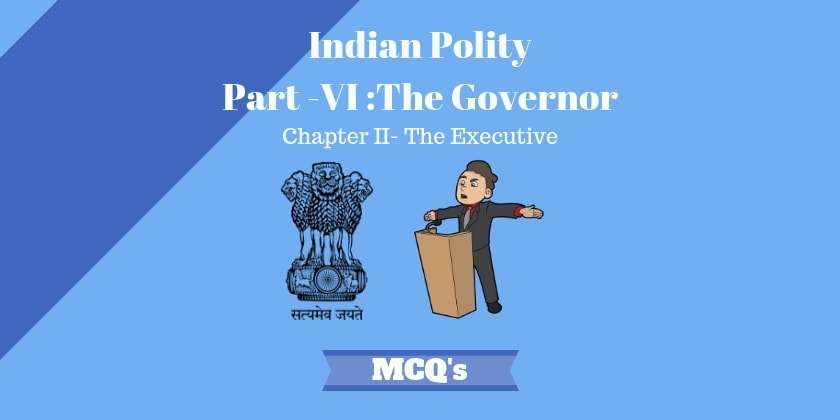21. Who among the following is/are not appointed by a State Governor?
A. Chief Minister
B. Members of the State Public Service Commission
C. High Court Judges
D. Advocate General
[toggle] Answer – C[/toggle]
22. The remuneration payable to the Advocate General of a State is determined by the
A. Chief Justice of the State High Court
B. Registrar of the State High Court
C. Governor
D. Chief Minister
[toggle] Answer – C[/toggle]
23. A State Governor has:
A. diplomatic powers
B. military powers
C. emergency powers
D. No diplomatic or military or emergency powers
[toggle] Answer – D[/toggle]
24. The Governor holds office for _____ years from the date of assumption of office.
A. five
B. four
C. six
D. three
[toggle] Answer – A [/toggle]
25. The Governor is the _____ of the Universities in the State.
A. Chancellor
B. Pro-Chancellor
C. Vice-Chancellor
D. Chief Executive
[toggle] Answer – A [/toggle]
26. Which article of the Constitution says that there will be a governor for each state?
A. Article 150
B. Article 151
C. Article 152
D. Article 153
[toggle] Answer – D[/toggle]
27. The executive power of the State is vested in the
A. Governor
B. Chief Minister
C. Neither
D. Both
[toggle] Answer – A [/toggle]
28. The authority to dissolve a State Legislative Assembly is vested in the
A. Chief Minister of the State
B. Speaker of the State Assembly
C. President of India
D. Governor of the State
[toggle] Answer – D[/toggle]
29. During the temporary absence of a Governor, the _____ is appointed to officiate as Governor.
A. Chief Sectetary
B. Speaker of the State Assembly
C. Chairman of the State Legislative Council
D. Chief Justice of the State High Court
[toggle] Answer – D[/toggle]
30. The office of Governor General of India was created by: [Asstt Grade 1991]
A. Charter Act, 1813
B. Charter Act, 1833
C. Government of India Act, 1858
D. Government of India Act, 1935
[toggle] Answer – C[/toggle]

